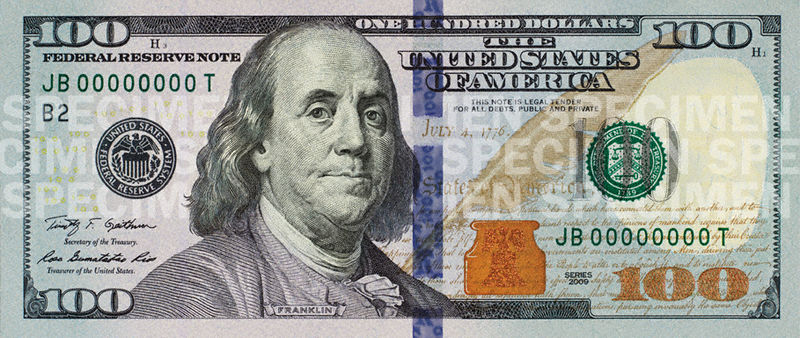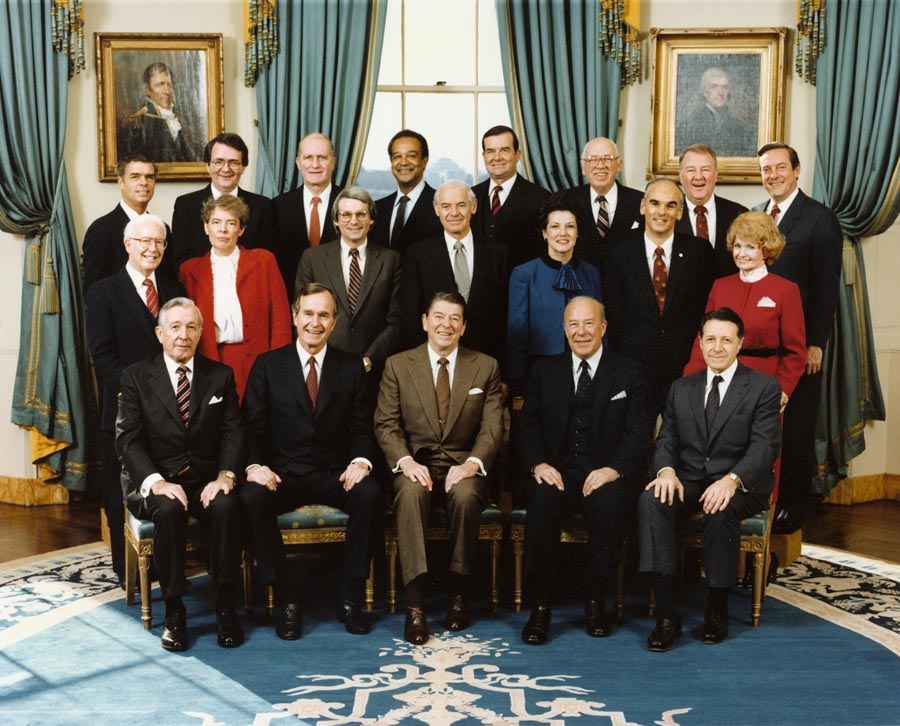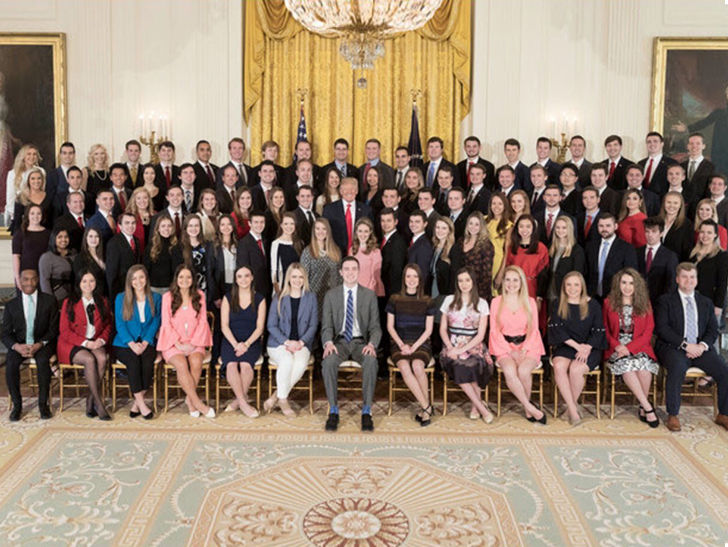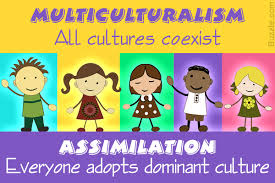Craig White's Literature Courses Dominant or
"Settler" culture (USA)
(compare Multiculturalism;
minority;
immigrant; Scotch-Irish;
Two Sets of Founders;
Waves
of Dominant Culture Immigration;
race / ethnicity)


What kind of culture do immigrants assimilate to? (and minorities resist or come to terms with?) . . .
The standard immigrant story involves assimilation (or acculturation) to the USA's dominant culture.
In contrast to those later immigrants, America's earlierst immigrants, settlers, or pioneers from Europe did not assimilate to a pre-existing American culture.
Instead, they imported and developed their own culture.
The USA's dominant culture is not monolithic, and within limits it absorbs or assimilates other ethnic or cultural identities to an impressive degree. (As with any ethnic or cultural group, individuals make some choices on their own that can diverge from or exceed standardized descriptions.) However, its racial or ethnic ideology has traditionally been that different races are "pure, permanent, and separate," though this attitude is fading somewhat with the aging of the Baby Boom generation, and it's never been completely true anyway.
Ethnically and historically, the USA's dominant culture is primarily made up of Two Sets of Founders and the Scotch Irish. (See Immigration Waves and Sub-Cultures of the USA's Dominant Culture.)
![]() Two Sets of Founders (who "found" the
cultural and economic "elites" of the USA)
Two Sets of Founders (who "found" the
cultural and economic "elites" of the USA)
![]() 1600s: The "Pilgrim Fathers" and other
Puritans of early New England, who
established
Protestantism,
literacy, and middle-class equality through church membership.
1600s: The "Pilgrim Fathers" and other
Puritans of early New England, who
established
Protestantism,
literacy, and middle-class equality through church membership.
![]() 1700s: The "Founding Fathers" (mostly in Virginia and other Mid-Atlantic
colonies) who established the United States as a secular republic defending
property rights and a mix of capitalism and democracy.
1700s: The "Founding Fathers" (mostly in Virginia and other Mid-Atlantic
colonies) who established the United States as a secular republic defending
property rights and a mix of capitalism and democracy.
![]() 1700s-early 1800s: The
Scotch-Irish: northern British immigrants to interior USA with less direct influence over
dominant-culture politics and economics but influential as Indian fighters,
soldiers in American wars, rural America, evangelical
Protestantism,
socially conservative white working class, etc.
1700s-early 1800s: The
Scotch-Irish: northern British immigrants to interior USA with less direct influence over
dominant-culture politics and economics but influential as Indian fighters,
soldiers in American wars, rural America, evangelical
Protestantism,
socially conservative white working class, etc.
Identification and analysis of the dominant culture is complicated by several factors:
![]() It's
everywhere at once, so any identifying quality seems automatically
compromised by a counter-quality.
It's
everywhere at once, so any identifying quality seems automatically
compromised by a counter-quality.
![]() Even where
one can spot it, its plain style leaves it unmarked, compared to the marked
quality of other ethnic groups or genders.
Even where
one can spot it, its plain style leaves it unmarked, compared to the marked
quality of other ethnic groups or genders.
![]() The
dominant culture is itself divided between "elites" and "workers"; each of these
groups may also divide.
The
dominant culture is itself divided between "elites" and "workers"; each of these
groups may also divide.
![]() Elites: gender-fluid; birth control, late marriage and child-bearing ("Red Families v. Blue Families.");
longer childhoods; predominantly white but
cosmopolitan / transnational (mobile);
pro-education; less patriotic but accepting of necessary government; laws
Elites: gender-fluid; birth control, late marriage and child-bearing ("Red Families v. Blue Families.");
longer childhoods; predominantly white but
cosmopolitan / transnational (mobile);
pro-education; less patriotic but accepting of necessary government; laws
![]() Workers: traditional gender; abstinence, early or no marriage and early
child-bearing ("Red Families v. Blue Families.");
shorter childhoods; all-white? + local-regional culture (stuck?); education as
threat?; patriotic but hate government; honor
Workers: traditional gender; abstinence, early or no marriage and early
child-bearing ("Red Families v. Blue Families.");
shorter childhoods; all-white? + local-regional culture (stuck?); education as
threat?; patriotic but hate government; honor
These groups are united by “whiteness,” by British
or Northwest European descent, and at least historically by
Protestantism,
but the groups differ in backgrounds, immigration history, attitudes, values,
etc.
Pilgrims and
Puritans value literacy, education,
community, and some hierarchy mixed with equality before God or the state.
The
Scotch Irish
value family honor, fighting (or military service), hard work,
independence, guns, common sense, fossil
fuels, etc., but it’s easier to identify what they oppose: authority (besides
God, Jesus, or parents), too much education, any question that they’re right
and everyone else is wrong. I’m still learning how to describe that group—anyway
they regard themselves as rightfully the dominant culture, but in some regards they
resemble an ethnic minority: isolation, immobility,
mistrust of authority,
addictive behaviors, joblessness, environmental poisoning.
![]()
Symbols of the Dominant Culture
The idea of an American dominant culture is elusive and sometimes uncomfortable. Therefore most people don't think about or discuss it except in brief references or symbols that index race / ethnicity, gender, religion, and class:
![]() early settlers of North America, or pioneers of the Old West, who were
mostly
northern European until the later 1800s. (British, German, Dutch, Scandinavian,
French)
early settlers of North America, or pioneers of the Old West, who were
mostly
northern European until the later 1800s. (British, German, Dutch, Scandinavian,
French)
![]() Whiteness
[race / ethnicity]
[color code] though white can often be
pink-cheeked or red-faced.
Whiteness
[race / ethnicity]
[color code] though white can often be
pink-cheeked or red-faced.
![]() WASPs: White Anglo-Saxon Protestants [race / ethnicity
+ language-nation + religion]
WASPs: White Anglo-Saxon Protestants [race / ethnicity
+ language-nation + religion]
![]() DWEMs
(Dead White European Males) [race / ethnicity +
gender + age]
DWEMs
(Dead White European Males) [race / ethnicity +
gender + age]
![]() "the
man," "angry white men" [gender + race /
ethnicity + class?]
"the
man," "angry white men" [gender + race /
ethnicity + class?]
![]() "the 1%";
owners vs. workers; financial sector and professional vs. blue collar; "People who
work for their money > people whose money works for them."
[class]
"the 1%";
owners vs. workers; financial sector and professional vs. blue collar; "People who
work for their money > people whose money works for them."
[class]
![]() other identifying
SYMBOLS: white bread, vanilla, soap, blonde hair &
blue eyes
other identifying
SYMBOLS: white bread, vanilla, soap, blonde hair &
blue eyes
![]() FOOD:
bland but sturdy; "fuel"; e.g. meat & potatoes, pork and beans, cabbage, cottage cheese, pound cake,
white bread, milk, bottled water. (Supports hard work but doesn't make you linger at table.) (Cracker
Barrel.)
FOOD:
bland but sturdy; "fuel"; e.g. meat & potatoes, pork and beans, cabbage, cottage cheese, pound cake,
white bread, milk, bottled water. (Supports hard work but doesn't make you linger at table.) (Cracker
Barrel.)
![]() VISUAL
STYLES—public style or fashion:
plain style; not flashy,
cool, unemotional,
businesslike; "unmarked"
(clothing: khakis, business suits, skirt and heels or sensible shoes; good
shoes) (+ "whiteness" can mean "blankness" or unmarked)
VISUAL
STYLES—public style or fashion:
plain style; not flashy,
cool, unemotional,
businesslike; "unmarked"
(clothing: khakis, business suits, skirt and heels or sensible shoes; good
shoes) (+ "whiteness" can mean "blankness" or unmarked)
All such identifications mix class, race, ethnicity, gender, religion, region, plus other variables, so more specific or reductive descriptions are hit-or-miss.
For American immigrant literature (and American Minority Literature), the simplest approach to American dominant culture is . . .
![]()
What is the culture to which immigrants
assimilate? What styles or values prevail in mainstream American culture?
(Non-exclusive—Other ethnic cultures may share, imitate, or develop
independently.)
![]() ASSIMILATION / RESISTANCE? The
dominant culture as immigrants did NOT assimilate to the
pre-existing cultures in North America (i.e. American Indian culture) but brought their own cultures and
languages with them. Early European-American immigrants are often called
"settlers," "pioneers," "explorers," or more negatively "conquerors."
ASSIMILATION / RESISTANCE? The
dominant culture as immigrants did NOT assimilate to the
pre-existing cultures in North America (i.e. American Indian culture) but brought their own cultures and
languages with them. Early European-American immigrants are often called
"settlers," "pioneers," "explorers," or more negatively "conquerors."
![]() Compare to
Exodus narrative in Bible, where Jews journeyed to "the promised land"
of Canaan but did not
assimilate to Canaanite culture.
Compare to
Exodus narrative in Bible, where Jews journeyed to "the promised land"
of Canaan but did not
assimilate to Canaanite culture.
![]() British
and other north-west European settlers came to "the promised land" of North America but did not
assimilate to
American Indian culture.
British
and other north-west European settlers came to "the promised land" of North America but did not
assimilate to
American Indian culture.
![]() Later immigrants are
implicitly expected to assimilate to the pre-existing dominant
culture established by these early settlers or pioneers.
Later immigrants are
implicitly expected to assimilate to the pre-existing dominant
culture established by these early settlers or pioneers.
![]() ENGLISH LANGUAGE (History
of English;
History & Nature of Language)
ENGLISH LANGUAGE (History
of English;
History & Nature of Language)
![]() LITERACY:
Protestantism (especially "Mainline
Protestantism") emphasizes need for individual to read Bible in order to
come to direct terms with God through scripture (in contrast to Catholicism's
historical retention of literacy for priesthood).
LITERACY:
Protestantism (especially "Mainline
Protestantism") emphasizes need for individual to read Bible in order to
come to direct terms with God through scripture (in contrast to Catholicism's
historical retention of literacy for priesthood).
Significance of Literacy:
![]() Literate population necessary for self-government or democracy.
Literate population necessary for self-government or democracy.
![]() Written scripture essential for "World Religions" like Christianity, Islam,
Buddhism, providing stable reference points or backgrounds across changing
cultures. For evangelical and fundamentalist Christians, the "literal" Word of
God is respected, at least selectively or symbolically.
Written scripture essential for "World Religions" like Christianity, Islam,
Buddhism, providing stable reference points or backgrounds across changing
cultures. For evangelical and fundamentalist Christians, the "literal" Word of
God is respected, at least selectively or symbolically.
![]() Writing essential for "constitutional government" of stable, transparent
laws and social organization, plus business contracts and accounting
(numeracy).
Writing essential for "constitutional government" of stable, transparent
laws and social organization, plus business contracts and accounting
(numeracy).
![]() Writing establishes "a government of laws, not of men"; theoretically, each
person, no matter how rich or poor, has equal rights and also responsibilities to
respect the laws as written and not just as they are wished to be.
Writing establishes "a government of laws, not of men"; theoretically, each
person, no matter how rich or poor, has equal rights and also responsibilities to
respect the laws as written and not just as they are wished to be.
![]() ELUSIVENESS
TO INVISIBILITY (UNMARKED): America's dominant culture is surprisingly invisible or hidden
(Upper classes conceal unequal wealth behind walls
of gated communities, way up in high rises, or in secure compounds).
Or the dominant culture may simply be so obvious and omnipresent that it doesn't
catch our attention, or it becomes a familiar, even desirable background; i.e., it is
"unmarked."
ELUSIVENESS
TO INVISIBILITY (UNMARKED): America's dominant culture is surprisingly invisible or hidden
(Upper classes conceal unequal wealth behind walls
of gated communities, way up in high rises, or in secure compounds).
Or the dominant culture may simply be so obvious and omnipresent that it doesn't
catch our attention, or it becomes a familiar, even desirable background; i.e., it is
"unmarked."
![]() SPEECH OR
WRITING STYLES:
"plain style"; plainspoken, non-theatrical (Puritans opposed theaters),
impersonal; one's
speech is one word--no separation between reality and language (cf. Biblical
literalism). (See also VISUAL STYLES above.)
SPEECH OR
WRITING STYLES:
"plain style"; plainspoken, non-theatrical (Puritans opposed theaters),
impersonal; one's
speech is one word--no separation between reality and language (cf. Biblical
literalism). (See also VISUAL STYLES above.)
![]() IMPERSONALITY / PROFESSIONALISM: An American ideal is
"a government of
laws and not of men" (John Adams): an impersonal system or law prevails over personal status,
birth, family, wealth. In everyday life the impersonal style may be labeled
"professionalism," emphasizing reason, self-control, and individual or
corporate interests or connections over personal identity and family relations.
Meritocracy depends on credentials, tests,
qualifications vs. personal identity.
IMPERSONALITY / PROFESSIONALISM: An American ideal is
"a government of
laws and not of men" (John Adams): an impersonal system or law prevails over personal status,
birth, family, wealth. In everyday life the impersonal style may be labeled
"professionalism," emphasizing reason, self-control, and individual or
corporate interests or connections over personal identity and family relations.
Meritocracy depends on credentials, tests,
qualifications vs. personal identity.
![]() INDIVIDUALISM / NUCLEAR FAMILY: The USA's culture of
geographical and socio-economic mobility erodes Old World or traditional
cultures' extended families and the stability of local social networks,
INDIVIDUALISM / NUCLEAR FAMILY: The USA's culture of
geographical and socio-economic mobility erodes Old World or traditional
cultures' extended families and the stability of local social networks,
![]() MOBILITY: In contrast to Old World or traditional
cultures' identification with a home or place, the USA's dominant culture (along
with subsequent immigrant groups) keeps moving, from Old World to New World, to
Western frontiers or up in high-rises or outer space. (East as Old World to West
as New World largely defines Western Civilization.)
MOBILITY: In contrast to Old World or traditional
cultures' identification with a home or place, the USA's dominant culture (along
with subsequent immigrant groups) keeps moving, from Old World to New World, to
Western frontiers or up in high-rises or outer space. (East as Old World to West
as New World largely defines Western Civilization.)
![]() NUCLEAR FAMILY: As with the ancient Jews of the Old
Testament, the modern American dominant culture's mobility leads it continually
to abandon extended family structures of traditional societies, putting stress
on the patriarchal nuclear family of father, mother, children.
NUCLEAR FAMILY: As with the ancient Jews of the Old
Testament, the modern American dominant culture's mobility leads it continually
to abandon extended family structures of traditional societies, putting stress
on the patriarchal nuclear family of father, mother, children.
![]() ORDERLY
FREEDOM:
USA's dominant culture works to maintain a "community of
individuals": self-determining subjects with
rights who nonetheless respect the
subjectivity and
rights of others.
ORDERLY
FREEDOM:
USA's dominant culture works to maintain a "community of
individuals": self-determining subjects with
rights who nonetheless respect the
subjectivity and
rights of others.
![]() MODERNITY over TRADITION:
Immigrants may arrive hoping to enjoy a traditional lifestyle,
only richer and with rights, but the USA's culture of prosperity and individual
rights requires constantly accelerating change or "creative destruction" of
traditional lifestyles and values.
MODERNITY over TRADITION:
Immigrants may arrive hoping to enjoy a traditional lifestyle,
only richer and with rights, but the USA's culture of prosperity and individual
rights requires constantly accelerating change or "creative destruction" of
traditional lifestyles and values.
![]() HISTORY: the
demographics and systems necessary for European
conquest and settlement of North America owe largely to
modernizing movements of the Renaissance, the Protestant Reformation, the
Enlightenment, and Romanticism.
HISTORY: the
demographics and systems necessary for European
conquest and settlement of North America owe largely to
modernizing movements of the Renaissance, the Protestant Reformation, the
Enlightenment, and Romanticism.
![]() VALUES:
modernity, mobility, individualism / nuclear family,
cleanliness / sterility, security, property, purity,
Protestant Work Ethic,
literacy.
VALUES:
modernity, mobility, individualism / nuclear family,
cleanliness / sterility, security, property, purity,
Protestant Work Ethic,
literacy.
![]() "Soap & Water" may negatively associate with whiteness as blankness, sterility,
disinfection, but may be essential for maintaining public health among peoples
from various lifestyles, traditions?
"Soap & Water" may negatively associate with whiteness as blankness, sterility,
disinfection, but may be essential for maintaining public health among peoples
from various lifestyles, traditions?
![]() ECONOMICS:
freemarket capitalism emphasizing profit motive and
heroic individualism as key to wellbeing (+- socialism); government is
transparent and limited by human or civil rights. Free market provides jobs and
opportunity; liberal government protects individual rights.
ECONOMICS:
freemarket capitalism emphasizing profit motive and
heroic individualism as key to wellbeing (+- socialism); government is
transparent and limited by human or civil rights. Free market provides jobs and
opportunity; liberal government protects individual rights.
![]() RELIGION: mostly Protestant,
and increasingly secular or Evangelical Protestant, but also respectful of privacy or personal choice. Protestantism is compatible
with modern culture by constantly splitting to new sects or denominations, but
also tradition-oriented in terms of nuclear-family support,
anti-intellectualism, and reversion to imagined earlier styles: new Protestant churches frequently model
themselves after the first Christians in the generation after Christ. (Recently some radical-conservative Protestants double-down by re-converting to Catholicism
and even Eastern Orthodoxy as expressions against modernization.)
RELIGION: mostly Protestant,
and increasingly secular or Evangelical Protestant, but also respectful of privacy or personal choice. Protestantism is compatible
with modern culture by constantly splitting to new sects or denominations, but
also tradition-oriented in terms of nuclear-family support,
anti-intellectualism, and reversion to imagined earlier styles: new Protestant churches frequently model
themselves after the first Christians in the generation after Christ. (Recently some radical-conservative Protestants double-down by re-converting to Catholicism
and even Eastern Orthodoxy as expressions against modernization.)
-
Protestantism promotes individualism and self-government in at least two regards:
-
Protestantism promotes individual literacy, which enables a system of laws and people who know their rights.
-
Literacy—originally the ability to read scripture for oneself—enables the individual to work out salvation without priests or intermediaries; to directly know and deal with God (and, by extension through contract, business and government).
-
-
![]() RACE /
ETHNICITY: Origins in European
descent, i.e.,
"white people" or "Caucasians," but some
intermarriage
with other nationalities and races
may occur as long as new members conform. Asian
or Jewish "Model Minorities" enjoy comparable status. Counterbalancing racial
exclusivity are "universal" appeals from Christianity (and other "World
Religions") and Enlightenment ideas of
"universal rights."
RACE /
ETHNICITY: Origins in European
descent, i.e.,
"white people" or "Caucasians," but some
intermarriage
with other nationalities and races
may occur as long as new members conform. Asian
or Jewish "Model Minorities" enjoy comparable status. Counterbalancing racial
exclusivity are "universal" appeals from Christianity (and other "World
Religions") and Enlightenment ideas of
"universal rights."
![]() CLASS:
"rich people?"—but many middle and
working class whites identify through race or ideology. Poorer whites often
support wealthier whites in belief that they too may be rich someday, while
associating political efforts for equality with ethnic
minorities.
CLASS:
"rich people?"—but many middle and
working class whites identify through race or ideology. Poorer whites often
support wealthier whites in belief that they too may be rich someday, while
associating political efforts for equality with ethnic
minorities.
![]() GENDER: masculine privilege, but European chivalry
honors women (esp. up the class and education ladder, as true of all cultures).
Protestant ideas of individual soul's equality before God empowers wider
equality.
GENDER: masculine privilege, but European chivalry
honors women (esp. up the class and education ladder, as true of all cultures).
Protestant ideas of individual soul's equality before God empowers wider
equality.
![]() RELATIONS
BETWEEN GENERATIONS: "Honor your
father and mother," but don't stick around or follow their models except in
family values. Traditional cultures favor generational continuity; modern
cultures require that, instead of imitating their parents, individuals imitate
or emulate their peers.
RELATIONS
BETWEEN GENERATIONS: "Honor your
father and mother," but don't stick around or follow their models except in
family values. Traditional cultures favor generational continuity; modern
cultures require that, instead of imitating their parents, individuals imitate
or emulate their peers.
![]()
More on race or nationality . . . (see Ethnicities of the USA's Dominant Culture)
USA's dominant culture derives from early settlers from Northern and Western Europe, especially England and the British Isles
Three main traditions or strains of America's dominant culture from several early waves of English immigrants:
Puritan immigrants (1600s) in New England and Upper Midwest:
-
more educated, more community organization and stability, more faith in government institutions, public schools, promotion of middle-class egalitarian society
-
vast literary heritage for study and cultural influence
Immigrants to Virginia and other Mid-Atlantic States (1600s); less commitment to community or government, more commitment to unregulated freemarket economics, private education, rich-poor society.
Scots-Irish immigrants (1700s) in Appalachian mountains and westward into lower Midwest, the South, Oklahoma and Texas, even parts of California and the Mountain West
-
less emphasis on education; more individualistic and fractious; anti-government even when dependent on government; faith in family or clan, even while suffering family and social breakdowns (traditional / dysfunctional family).
![]()
Proper spelling of a single word won't make or break your semester, but it really helps your instructor-grader's mood if you don't spell "dominant culture" as "dominate culture."
-
"dominant culture" is right. (dominant is the adjective form of the verb dominate)
-
"dominate culture" is wrong. (dominate is a verb, not an adjective)
![]()

1984 Presidential Cabinet, President Ronald Reagan
front-center

Trump White House interns (March 2018)

Thanks to https://opinionfront.com/multiculturalism-vs-assimilation